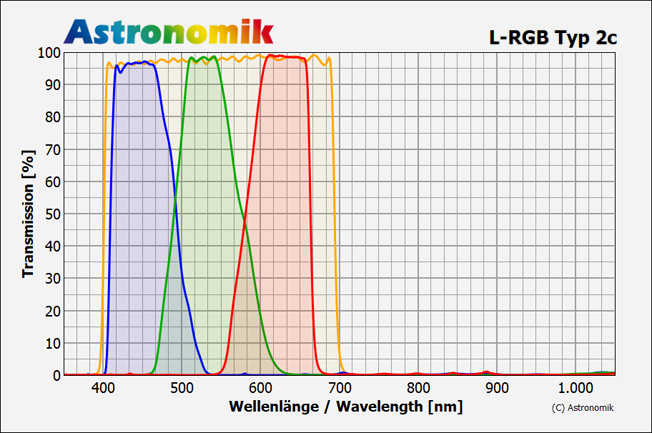- Astronomik Lunar calendar for 2024
The Astronomik calendar of the Lunar phases in 2024 is ready.
- Chistmastime and New Year 2023-2024
We wish you a merry Chirstmastime and a happy and healthy 2024...
- Astronomik Lunar calendar for 2023
The Astronomik calendar of the Lunar phases in 2023 is ready.
- Chistmastime and New Year 2022-2023
We wish you a merry Chirstmastime and a happy and healthy 2023...
- Shipping methods
Shipping as registred good shipment is no longer available
- How to observe planetary nebulae
A very nice introduction to observing planetary nebulas written by Owen Brazell
Astronomik L-RGB color filter set
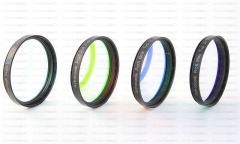
Click the image for full resolution
Our filter set especially designed for astrophotography with CCD cameras. These filters provide a natural color reproduction of planets, stars, emission- and reflection nebulas.If you want to take great deep-sky images with a modern CMOS or CCD camera from ZWO/ASI, QHY, QSI, SBIG, ATIK, ALTAIR etc., we recommend our .
The transmission properties of the L-RGB Typ 2c filters are optimized for CCD astrophotography. The set allows to take images in correct colour for all types of objects. Where other brands make strange compromises, we do the best colour reproduction possible. Both stars as well as objects that emit only in spectral lines, are reproduced in their true colors. You get CCD images with perfect colors, as if the objects where bright enough to be seen with photopic vision. This feature is the main difference between Astronomik filters an those of other manufacturers.
The following aspects have been most important for the design of our filterset:
- simple image processing for the user
- highest transmission (nearly 100%) for short exposure times
- adjusted transmissions of the individual filters for optimal colour reproduction
- the use of industry standards
Astronomik doesn't stop thinking at the step of taking the picture. More important a tool should be given to the astrophotographers that offers a simple and elegant editing process. To maintain the colour, we calculated our filterset for the sRGB color space, that is used as an industry standard from most manufacturers of monitors, printers and imaging software. As a user you do not need to spend time to learn about colourimetry and colour spaces. We have solved the special problems of astrophotography for you.
Due to the high-precision machining of the carrier substrate, our filters are parfocal with wedge errors below all usual margins. In order not to be the bottleneck in a high-quality optical system Astronomik filters are of course diffraction limited. Issues concerning focal distances as well as the exact location of the images of each colour image are not a problem at all!
Main use
The L-RGB filter set divides the spectrum into its components red, green, blue and luminance. Thus colour separation can be achieved with pure b/w CCD sensors. The separation corresponds to the colour sensitivity of the human eye according to DIN 5032. By using the sRGB color space it is possible to maintain the color of the image throughout the entire image processing and output. With an Astronomik L-RGB filter set and your camera you create ideal raw material for imageprocessing in the sRGB color space.
Other uses
- In combination with the Astronomik line filters your images will show interesting details of astronomical objects. For example, the red image can be enhanced by H-alpha or the green image by OIII.
- For planetary observation and photography the color filters are gladly "misused".
more information about the photographic Astronomik filters
How to read the chart
The major emission lines of artifical light pollution:
| Hg 435,8nm | Hg 546,1nm | Hg 577,0nm | Hg 578,1nm |
| Na 589,0nm | Na 589,6nm | Na 615,4nm | Na 616,1nm |
The major emission lines of nebulas:
H-β 486,1nm | OIII 495,9nm | OIII 500,7nm | H-α 656,3nm
- The horizontal axis is the Wavelength in Nanometers (nm). 400nm is deep blue, at 520nm the human eye senses green and at 600nm red. At 656nm is the famous "H-Alpha" emission line of hydrogen.
- The transmission in % is plotted on the vertical axis.
- The red line shows the transmission of the filter.
- Visual filters: The grey line in the background shows the relative sensitivity of the human eye at night. The maximum is at ~510nm and drops to longer and shorter wavelengths. You can easily see, that you can´t see anything of the H-alpha line at night (even if you can during daylight!) The sensitivity at 656nm is 0% at night!
- Photographic filters: The grey line in the background shows the sensitivity of a typical CCD sensor.
- The most important artifical emission lines are shown in orange. The artifical light pollution is dominated by see mercury (Hg) and sodium (Na), which are used in nearly all streetlights.
- The most important emission lines from nebulas are shown in green. The most important lines are from ionized Hydrogen (H-alpha and H-beta) and double ionized oyxgen (OIII).
The major emission lines of artifical light pollution:
| Hg 435,8nm | Hg 546,1nm | Hg 577,0nm | Hg 578,1nm |
| Na 589,0nm | Na 589,6nm | Na 615,4nm | Na 616,1nm |
The major emission lines of nebulas:
H-β 486,1nm | OIII 495,9nm | OIII 500,7nm | H-α 656,3nm
Suitability
- Visual observation (dark skies): Good, used as colour filter for planetary observations
- Visual observation (urban skies): Good, used as colour filter for planetary observations
- Film photography: Unsuitable
- CCD photography: Very good, excellent colour separation with RGB and L-RGB pics
- DSLR photography (original): Unsuitable
- DSLR photography (astro modified): Unsuitable
- DSLR photography (MC modified): Unsuitable
- Webcam / Video (Planets): Good, used as colour filter for imaging planets
- Webcam / Video (Deep Sky): Good, used as colour filter for imaging planets
Technical Data
- Parfocal with other Astronomik filters
- Glass thickness: 1mm
- Completely resistant against high humidity, scratches and aging effects
- Diffraction limited, the filter will not reduce the optical performance of your telescope!
- Astronomik filters are delivered in a high-quality, long lasting, filter box
- Since 2008 we do ship filters with a completely new design. Any kind of halo or strange reflection is a matter of past
The filter is available in the following sizes
Filter displayed products below by their features
L-RGB Typ 2c Color filter
-
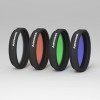
Astronomik L-RGB Type 2c Filterset 1,25'' (M28,5), 4 filters
excl. VAT (Non-EU): €251.26 incl. VAT (EU): €299.00 -
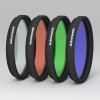
Astronomik L-RGB Type 2c Filterset 2'' (M48), 4 filters
excl. VAT (Non-EU): €494.96 incl. VAT (EU): €589.00 -
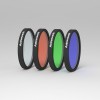
Astronomik L-RGB Type 2c Filterset 31mm, 4 filters
excl. VAT (Non-EU): €293.28 incl. VAT (EU): €349.00 -
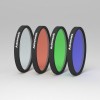
Astronomik L-RGB Type 2c Filterset 36mm, 4 filters
excl. VAT (Non-EU): €326.89 incl. VAT (EU): €389.00 -
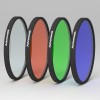
Astronomik L-RGB Type 2c Filterset 50mm, 4 filters
excl. VAT (Non-EU): €494.96 incl. VAT (EU): €589.00 -
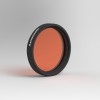
-
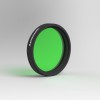
-
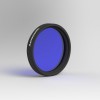
-
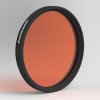
-
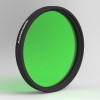
-
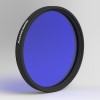
-
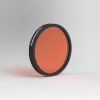
-
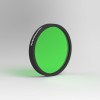
-
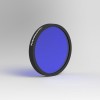
-
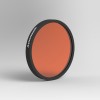
-
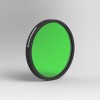
-
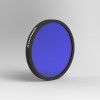
-
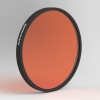
-
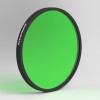
-
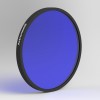
-
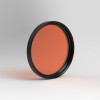
-
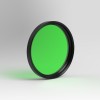
-
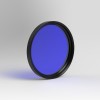
-
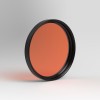
-
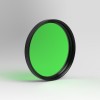
-
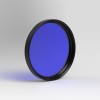

 Deutsch
Deutsch English
English